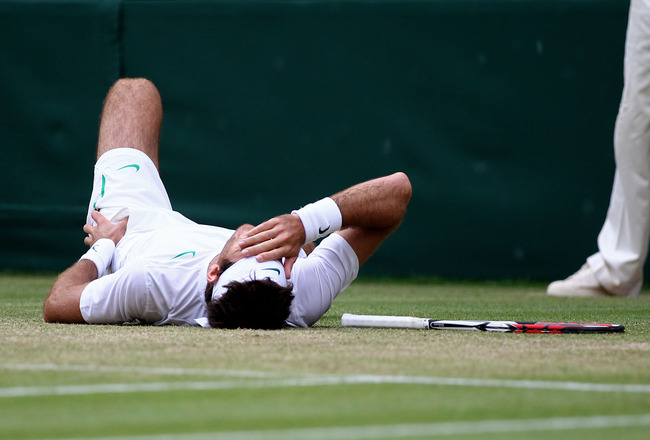Psychological response to injury – symptoms in athletes

Louise Ellis explores the psychological responses elite and professional athletes experience after injury and how this impacts on the healing process.
Sports performers like any other group can experience loss in many ways; loss of form, loss of speed or loss of not being able to perform at the expense of an injury or loss through retirement from the game. The ‘grieving responses’ and impact on the ‘healing process’ are often ignored or misunderstood by coaches, fitness trainers and to a certain extent athletes themselves. Research has revealed that after sustaining an injury or retiring from the sport, professional and elite level athletes experience the same psychological responses as individuals who are grieving the loss of a loved one. This holistic research over the last two decades has looked at grief and loss models and typically found that athletes go through similar stages; i) shock / denial; ii) despair; iii) anger; iv) depression; v) pre-occupation and; vi) re-organisation, until the vii) acceptance phase is reached. The acceptance stage still does not mean the athlete is in a happy psychological state, it merely means the athlete has got to a point where there is less emotion involved.
Of course the magnitude and extent to which an athlete stays in the first four stages depends on the following factors where injury is concerned; the timing of the injury and what’s at stake; the severity of the injury; the athlete’s injury history and how the injury was caused. For example, an athlete who sustains a minor injury niggle and misses a couple of training sessions will experience less intensity with the psychological responses (depending on the individual’s baseline) than an athlete who will miss a major competition or tournament. Re-occurring injuries on the other hand can cause more frustration and tension, whereas an athlete who is injured by an opponent’s malicious tackle may have increased anger. The research on injury response in professional athletes also shows that an athlete’s psychological state will fluctuate, especially between the first four stages during the rehabilitation process.
How does that impact on the healing process?
To determine the severity of these states, careful monitoring of the athlete’s psychological and psycho-physiological states from the onset of injury to return to performance and beyond is essential. Scientists have found that psychological stress can increase the levels of some hormones in the blood. These hormones can slow the delivery of certain compounds called cytokines to the origin of the injury to start the healing process. Studies have also demonstrated that psychological stress is associated with slower repair and healing of surgery wounds because psychological stress is shown to impair the inflammatory responseand matrix degradation processes in the wound immediately followingsurgery. Since professional athletes who undergo surgery may already be in a ‘state’ of despair, psychological monitoring and interventions to facilitate healing from the outset is even more important.
Longer term, ongoing interventions and psycho-physiological monitoring to support the athlete with the healing process are a must. At the latter stages of injury rehabilitation the athlete must also be supported with interventions to help them return to a high level of performance and also alleviate any stress they have around this and any conscious and subconscious concerns they have over further injury.
However painful and upsetting for the athlete at the time, these experiences and having to cope with adversity can make the athlete mentally stronger, especially if the athlete is learning more about the interaction of their mind and body during rehabilitation and return to performance.
For a discussion on how Louise can support the athlete during injury rehabilitation from a mind, body and spirit perspective please contact louise@louiseellis.com.
© LE Performance Consulting Ltd 2010. All Rights Reserved






